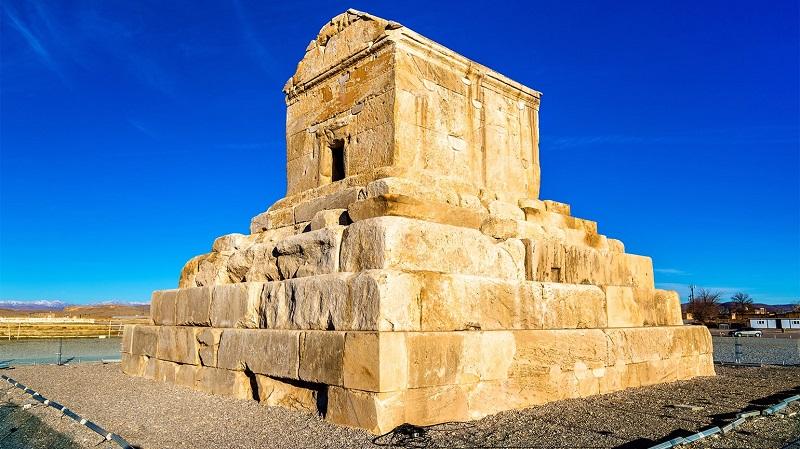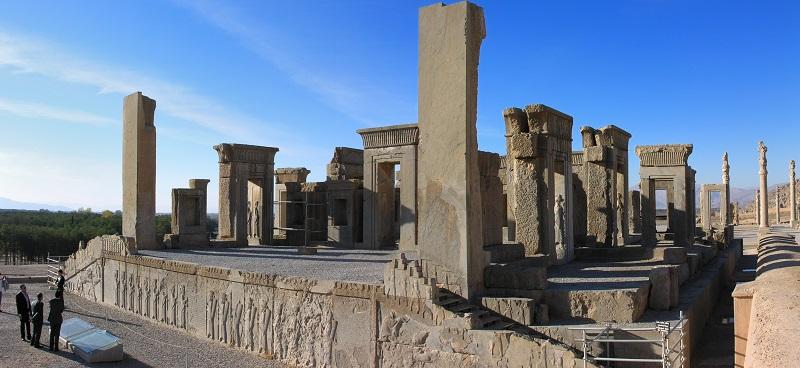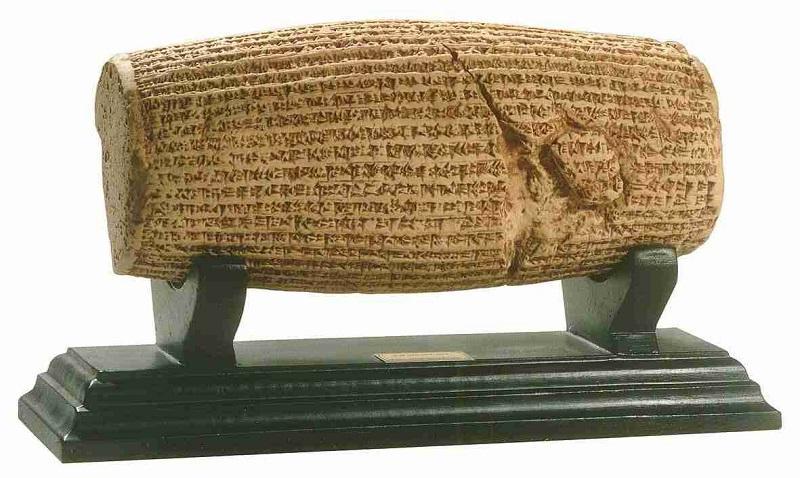A brief description about the Great Cyrus
Cyrus (Kourosh in Persian) is one of the most exceptional people throughout history. He was highly successful in establishing and preserving the Achaemenian (Hakhamaneshi) Empire which resulted out of his intelligence and military skills. Nowadays, the Persians call him 'father'. He had high expectations of both himself and all fellow citizens; as a ruler, he was magnificent and proved that he is highly smart and rational; this is what makes him unique, unprecedented and never-born again.
According to evidence, his compassion was accompanied by his humility; as a result, people from various social classes had the chance to arrange meetings with him and this made him a sociable King arisen from the people themselves. This is not the end of his names; he was also named as mastermind, diplomat, and administrator. Thus, Cyrus was considered praiseworthy of the title "Great".

Biography of the Great Cyrus
Herodotus, the Greek historian, illustrates the myth of Cyrus. Based on Herodotus’ evidence, Astyages was Cyrus' grandfather who wanted his daughter Mandane to make too many offspring that could cover all the Asia. Consequently, her father made Mandane marry a Persian person called Cambyses.
. Mandane and Cambyses were married just for a year when Astyages had a dream; he dreamed of a trailing plant rising out of Mandane's womb and covered the whole of Asia. It was considered a bad sign and Astyages made sure that Mandane's son would not appropriate his throne.
The king held in reserve his pregnant daughter under security measures until the child was born. King ordered Harpagus, the confidant of the king, to murder the baby; however, he decided not to do it himself and ordered a royal shepherd to carry out the king's order.
However, the shepherd's own wife had given birth to a still-born child, and she persuaded him to raise the royal baby and bring it up as their own child. They then presented Harpagus with the dead body of their dead child, declaring that it was Mandane's son.
About the Great Cyrus power
Cyrus soon grew and became a wonderful young boy, surpassing his fellows and showing characteristics of leadership and royalty. One day, in an entertaining game with other children, Cyrus was selected to take part in the game as king. In the position of a king, Cyrus penalized the son of a renowned Persian man who rejected to obey him. The father of the punished boy complained to King Astyages who called in Cyrus. When Astyages asked him why he acted so, Cyrus defended by explaining that he was playing the role of king, so he had the right to discipline the person who did not comply with his orders.

Astyages understood that shepherd's son will never say such words and apprehended that the boy was his own grandson, the son of Mandane. Full of rage, Astyages punished Harpagus for his disobedience and killed his son. The king permitted Cyrus to return to Persia to his real royal parents.
Harpagus promised to take revenge for his son's death and persuaded Cyrus to take hold of his grandfather's empire. Herodotus reports that Harpagus wrote his plan on a piece of paper and via a complex method, sent it to Cyrus.
After Harpagus' letter, the idea of overthrowing Astyages was implanted in Cyrus’s mind. As a before thought strategy, he convinced a number of Persian tribes to side with him and finally succeeded in overthrowing his grandfather and became the ruler of the Persians.
Cyrus commanded his general Harpagus to strengthen the Persian position, and shortly afterward Lycia, Caria and even the Greek cities of Asia Minor were added to his newly established Persian empire.
The charter of Great Cyrus
In 540 BC, Cyrus wished to conquer Babylon. King of Babylon was unsuccessful in maintaining union within his kingdom and therefore, his son, Belshazza was in charge of the affairs of the kingdom.
. In addition to dissatisfaction in Babylonia due to its king's religious procedures, Cyrus utilized this internal division for his benefit.
Besides, Belshazzar took pleasure in his personal affairs and enjoyment rather than protecting his people that were an added help for Cyrus' easy entry.
Babylon gave in to Cyrus with barely a fight back, since the city was taken in a sudden operation and hence, no resistance could arise. Cyrus, however, legitimized his succession as king by 'taking the hand of the god Bel' and his persuasive propaganda convinced the Babylonians that Marmuk, their supreme deity, had directed his steps towards the city.

Cyrus portrays himself as the 'ruler of the world.' Cyrus also explains in his Cylinder how he sent home various peoples. The Jews are examples of such people who were permitted to return to Jerusalem.
This Cylinder was part of the strategy that Cyrus desired to bring peace to mankind, and later it was labeled as the first Charter of Human Rights. Although sections of the cylinder have been ruined through time, the principal message of Cyrus' Declaration goes like this:
The new translation by Irving Finkel, Curator of Cuneiform Collections at the British Museum:
He inspected and checked all the countries, seeking for the upright king of his choice. He took under his hand Cyrus, king of the city of Anshan, and called him by his name, proclaiming him aloud for the kingship over all of everything. He made the land of the Qutu and all the Medean troops prostrate themselves at his feet, while he looked out in justice and righteousness for the black-headed people whom he had put under his care. Marduk, the great lord, who nurtures his people, saw with pleasure his fine deeds and true heart and ordered that he should go to Babylon He had him take the road to Tintir, and, like a friend and companion, he walked at his side. His vast troops whose number, like the water in a river, could not be counted, marched fully-armed at his side. He had him enter without fighting or battle right into Shuanna; he saved his city Babylon from hardship. He handed over to him Nabonidus, the king who did not fear him. All the people of Tintir, of all Sumer and Akkad, nobles and governors, bowed down before him and kissed his feet, rejoicing over his kingship and their faces shone.
I am Cyrus, king of the universe, the great king, the powerful king, king of Babylon, king of Sumer and Akkad, king of the four quarters of the world, son of Cambyses, the great king, king of the city of Anshan, grandson of Cyrus, the great king, king of the city of Anshan, descendant of Teispes, the great king, king of Anshan, the perpetual seed of kingship, whose reign Bel and Nabu love, and with whose kingship, to their joy, they concern themselves.
